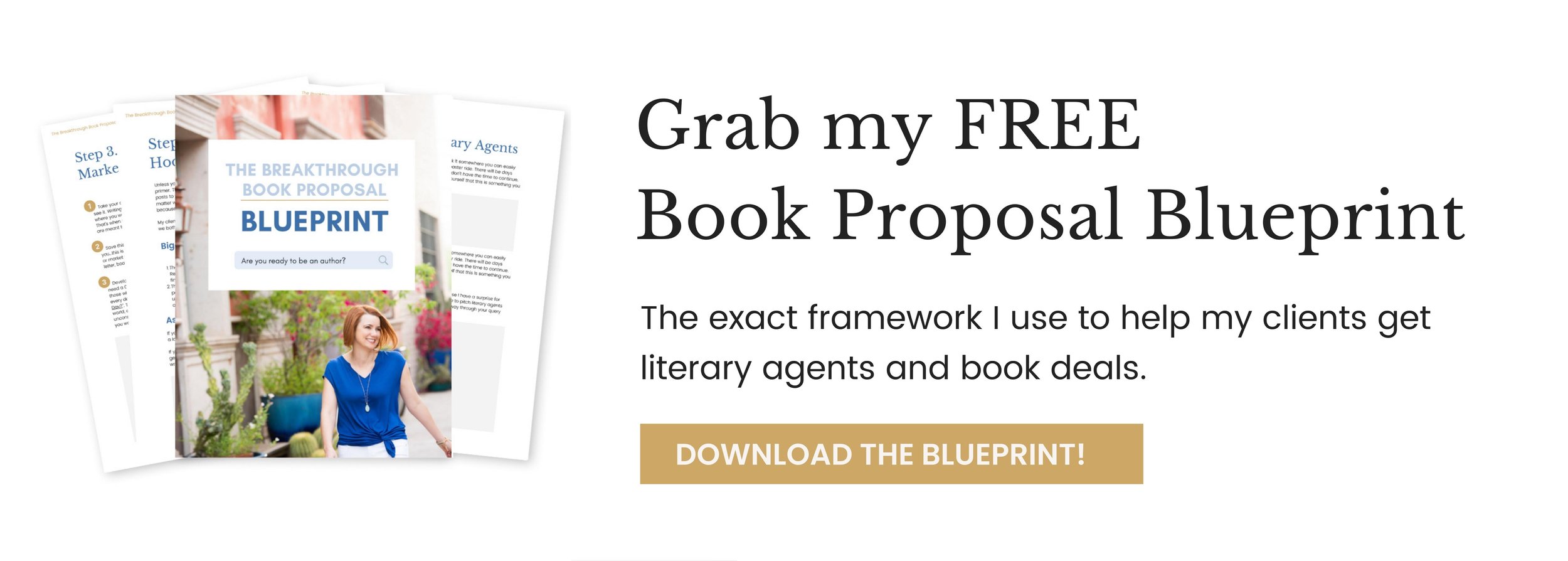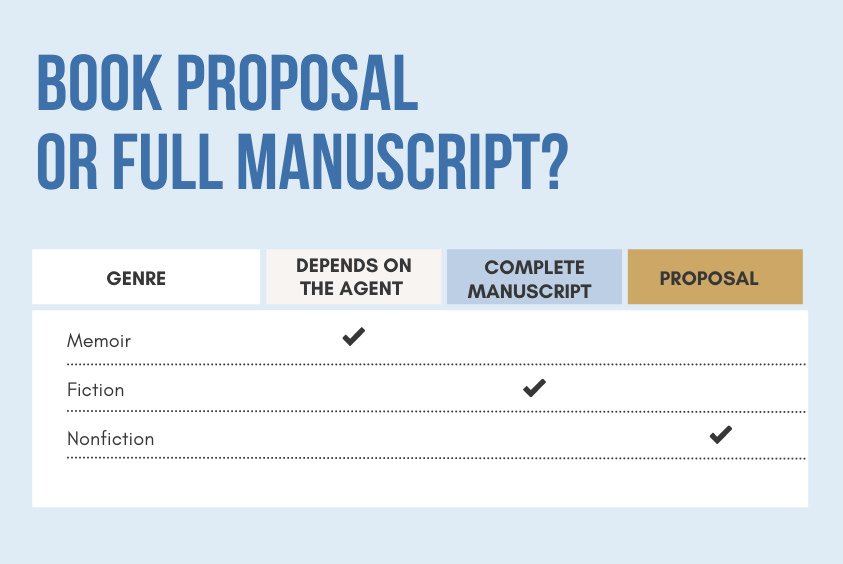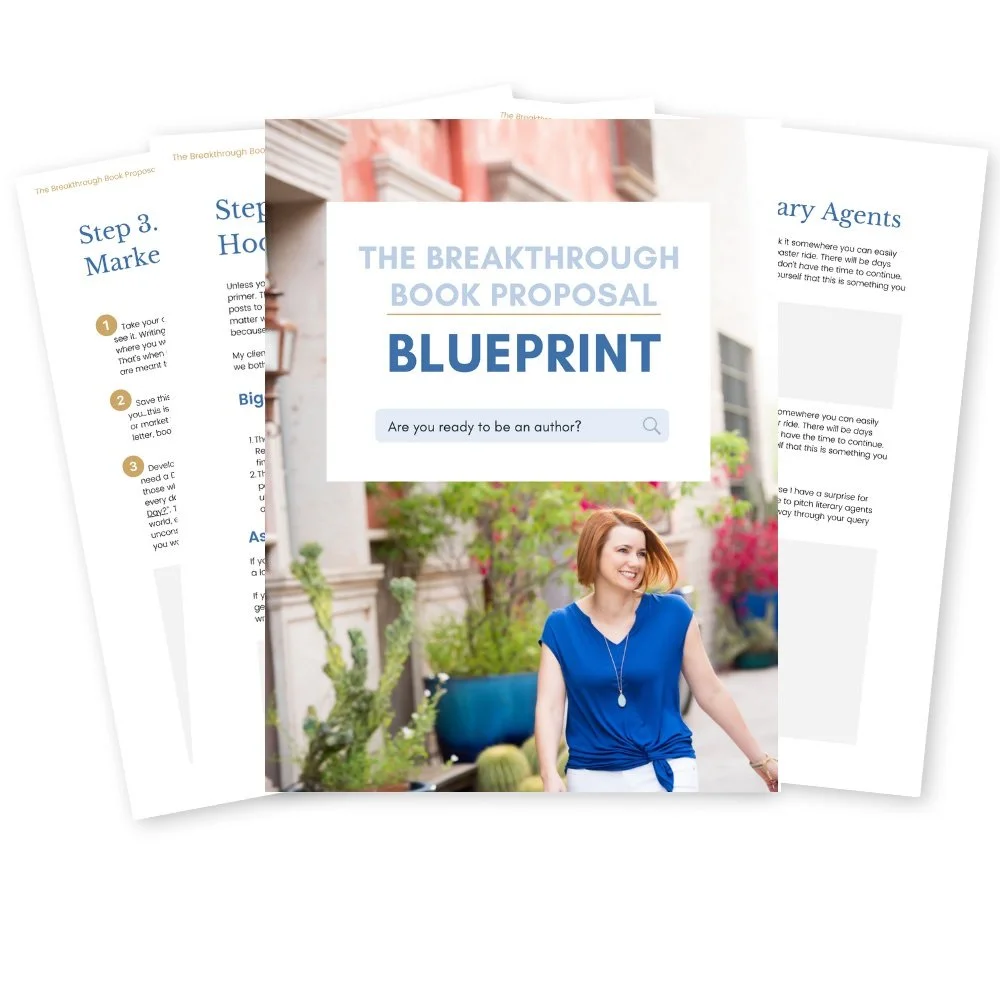How to Write a Knock-out Book Proposal (+ Template & Strategy)
Photo by Karolina Grabowska
As someone who deals with book proposals day in and day out, I have a lot to say! To help you more easily navigate this very long post, here’s a quick rundown of what I’ll cover:
Start here: Don’t write your book proposal before completing this crucial step.
We’ll get to everything you need to write a kick-ass book proposal, but there’s something you need to do first.
Anyone can hammer out the sections of a proposal (which I’ll get to in the template below), but before we break down what goes into your proposal, we need to talk about your concept or your “hook.”
The biggest mistake I see in book proposals—and self-published nonfiction books for that matter—is a flabby concept.
It’s not enough to write just another book on your topic. No matter how you publish, in order to stand out, you need to understand what has already been published and what makes you and your message special.
When I work with a client on their book proposal, I make sure we both think their concept is fresh and utterly brilliant before we start writing the proposal itself.
If you don’t, you’re wasting your time on busy work just to throw together a bunch of pages that kinda describe a book that you think maybe people will like if you get lucky because it’s all just a crap shoot, right? Wrong.
If you take the time to develop an irresistible hook or concept, you will:
Maximize your chance of selling your book to publishers
Write the book way more easily in far less time
Share a meaningful book with the world, a book that matters, rather than just another pile of words that adds to the noise
Let’s make this proposal (and your book!) matter. If you can do these three things—tightly dial in your concept, know how it stands out in the market, and articulate your irresistible hook—then you’ll be able to ensure every part of your proposal works together to convince agents and publishers it simply must be published.
For instructions on how to do that, download my FREE Book Proposal Blueprint, where I walk you through the exact method I use to help my clients get book deals.
What is a Book Proposal and When do You Need One?
A book proposal is basically a 20-70 page business plan for your book that needs to convince publishers the world needs this book (right now) and that you’re the perfect person to write it.
If they’re sold, they’ll offer you an advance and a book contract before you actually finish the book. That’s awesome because then you can focus on writing a brilliant book while they help edit, polish, design, produce, market, and sell the book.
What types of books are sold on proposal? Non-fiction and Memoir.
Unfortunately, anyone writing fiction—novels, story collections—is going to have to write the whole manuscript before submitting to literary agents and publishers.
What goes into a book proposal?
Book proposals aren’t one-size-fits-all and you may choose to highlight your book’s strengths in a different way, depending on your genre, your format, your personal strengths, or whatever you want. But it’ll really help to keep the proposal’s purpose in mind before you stray from the template and make it your own.
I’ll give you a template in a moment, but first…the purpose of a proposal. However you decide to format your proposal, it should tell publishers 4 things:
What’s so great about it
Why the world needs it and why we need it now
Why it’s marketable
Why you’re the one to write it
How you’re going to get word out
(+ 1-3 sample chapters that prove you can pull it all off)
In other words, as long as you understand the goal and what they’re expecting to see, write this in any way that shows off your unique genius!
A Typical Book Proposal Template
We all love a good template, so here’s what goes in a proposal and the typical order in which you’ll present each element.
Title page: This simply gives them the title, your name, and your contact info. Thesis paper anyone?
(Optional) Showcase page: This is totally optional, and depending on who you talk to, it will be called something different. Basically, if you want to, you can open with a page that quickly and dramatically highlights your book’s strongest selling point. I go more into that and all of these elements in my Breakthrough Book Proposal program.
Proposal Table of Contents: This isn’t the book’s contents but the proposal’s. It lists every section you’ve included in the proposal with page numbers. If you’re able, make those page numbers jump to the page in question. I’ve got a super quick video here that’ll show you how to do that in both Word and Google doc.
Overview: These 1-3 pages are written in complete sentences and paragraphs (as opposed to bullets or outlines, which we may use later) and they give agents and publishers a sense of what’s to come. You’ll highlight what makes your book so awesome: the need for your book, it’s strengths, how you’re going to present it, and how you’re going to promote the hell out of it.
Comparative and Competitive Titles (a.k.a. Comps): Here you’ll roundup the key books on your topic and what makes yours the same and different. If you do this well, you’ll show that books like yours are selling but that something is missing and you have just the thing.
Target Audience: In about a page, you’ll describe which markets your book will appeal to and why.
Author Bio: This is your chance to prove you’re the person to write this book. This will not be the same as other bios you may be using in your professional life. It’s specific to this book, and it’s usually about one page. Even if you don’t have the biggest platform on planet earth, there’s something you can offer that no one else can, so don’t let imposter syndrome get in the way!
Marketing/Publicity/Platform: Sometimes these are broken into separate sections, and sometimes they’re rolled into one. This is where you highlight everything you are going to do to get this book to readers. Oftentimes this is written with bullet points so that a quick glance will show all the ways you have already been gaining visibility and what you plan to do going forward. You may also choose to use sentences and paragraphs, but make them easy to digest.
The Book’s Table of Contents: This TOC will let agents and publishers take one look and get a sense of what’s in your book, how it’s structured, and how each chapter builds from the last. Make sure your chapter titles suggest what’s inside and help demonstrate the book’s flow and impact! Note: This page is essential for prescriptive non-fiction, but not always necessary for memoir.
(Optional) Specs/Format/Supplemental materials: If your book has a unique format, or if it includes charts, art, photography, or other necessary additions, you can mention that with an additional section.
Detailed Outline/Chapter summaries: Call it whichever name you like, but either way, use 1-3 paragraphs per chapter to concisely but effectively show what will be covered in each chapter. Again, you want this to build and flow so that when agents and publishers read it, they’ll have the same sense of completion your reader eventually will (though without all the detail, of course). This is going to be your best friend as well, helping you see the overarching framework and giving you a step-by-step plan for writing to The End.
Sample Chapters: This is where the rubber meets the road! Rather than describing what you’ll write to an agent or publisher, you’ll actually write 1-3 chapters as if you’re presenting them directly to your reader. They should look just like they eventually will when your book hits the bookstore. You’re now out of the world of promises and showing them you can deliver. Show off your genius, baby!
Submitting your book proposal
Big traditional publishers
Very few traditional publishers will accept unsolicited and unagented submissions, so in almost all cases, to get a traditional publisher, you’ll need to get a literary agent first. Your agent will have relationships at the various publishing houses and imprints, so they’ll know who’s looking for what books and how to sell yours. Then they’ll help negotiate the best deal for you, in return for 15% of your earnings. (Here’s all about literary agents.)
Small and University publishers
You may not need an agent to submit to a small niche press or a university press. Check the publisher’s website for submission guidelines.
The 5 most common mistakes I see in book proposals
A vague premise: As I mentioned at the beginning of this post, a generic concept will sink a book. If you don’t do the work to understand the market and what makes you stand out, it will show, and you’ll be hard pressed to get publishers or readers to say, “yes, I need that!” I’ve seen so many bland self-pubbed books by well-meaning authors who I’m absolutely sure had something unique to say, but unfortunately, they didn’t take the time to unearth it.
Weak or confusing Table of Contents: Most of the unpublished TOC’s I see are cute or clever but not at all clear. They have punny chapter titles that don’t give any idea as to what the book is about, how it flows, or what impact it will have by the end. It’s one short page, but it can make or break a book deal, so I don’t want my clients submitting until we get this right.
No story arc: Believe it or not, you need a story arc for non-fiction—obviously for memoir, but even for prescriptive nonfiction. The difference is that instead of showing the character’s journey, you take the reader through their own journey.
Not enough voice or story: “Just the facts, ma’am,” may work for a police report, but for a book it’s dull as dirt! Include stories. Let us into your life. Show us your vulnerability and personality, or if you’re writing about someone else, show us theirs.
Not enough platform: You might not need as much as you fear, and this does NOT mean you need to spin your wheels on every social platform on earth. In fact —publishers know that social media alone isn't so great for sales. But you DO need something. You’ve gotta show how you’re going to reach readers, so start working on this now!
FAQs about proposals
Do I need a book proposal if I’m going to self-publish?
Technically you don’t need anything at all to self-publish, and you can upload anything you want. But to be successful, I highly recommend creating a modified proposal for your own use. It doesn’t have to be quite as formal, but think of it like opening a restaurant—you wouldn’t do that without a watertight business plan, right?
There’s a reason publishers want to see a proposal before investing their time and money: The odds of successfully marketing a book (let alone engaging readers once they buy it), are infinitesimally low if you aren’t crystal clear on exactly how your book fits into the market, what makes it (and you) special, how you will create a cohesive book that delivers on your promise, and precisely how you’re going to get it into the hands of readers.
Do I need a book proposal for hybrid publishing?
Depends entirely on the publisher, but I’ll tell you that reputable hybrid publishers definitely want to see a well-conceived plan by an author who knows what they’re doing. More often than not, they’re almost as selective as traditional publishers and you’ll have to stand out from the competition.
(Side note: Before working with any hybrid publisher, make sure they’re legit. Unfortunately there are a lot of scams out there.)
Do I need to read all of the books I use as comps?
Nope, not in their entirety. But you should definitely familiarize yourself well enough to know what’s in them, what makes them different from each other, and how you offer something new.
Conclusion
The bad news: If you thought you could just throw together a book and wow the world, I’m sorry to disappoint you. Take a look at how many books get published each year—the noise is deafening! The only way to stand out is to offer something unique that readers want and that they want from you.
Although, there’s definitely a case for self-publishing, don’t think you can skip the work and self-pub successfully. In fact, if you’re going to get a significant audience with a self-published book, you need an even more solid plan and an even bigger platform because you don’t have the publisher’s resources and reputation behind you.
The good news: If you’re truly compelled to write this book, I’m willing to bet you have that special sauce. You just need to find it and showcase it!
Don’t forget my free Blueprint!
In this free guide, I’m revealing the exact framework I use to help my clients get literary agents and book deals. Let me show you how to:
• Conceive your IRRESISTIBLE “hook”
• Showcase your book’s sales potential, even if you’re not sure your PLATFORM is big enough
• WOW agents with your pitch




